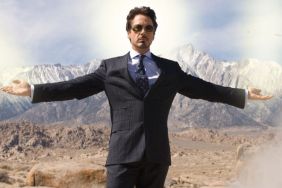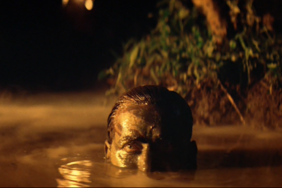He wrote Midnight Express, Conan the Barbarian and the remake of Scarface. He became one of the most celebrated American filmmakers in history by questioning the status quo, and daring his audiences not to be angry about it. He’s made some of the most controversial motion pictures in the history of the medium. And he’s still going.
Oliver Stone is a divisive figure in the film industry, but an unquestionably significant storyteller whose vision of a flawed, violent, and corrupt America has taken hold and informed the way we look at this country. His latest film, Snowden, is trying to do it all over again by telling the story of infamous whistleblower Edward Snowden, and while it may not be his best movie, it does beg the question: what is?
We asked our panel of critics – Crave’s William Bibbiani, Legion of Leia’s Witney Seibold and Collider’s Brian Formo – to each pick the one film they think stands out as Oliver Stone’s crowning accomplishment. As usual, they could agree on a thing. Find out what they picked and why, let us know your own Oliver Stone favorites and come back next Wednesday for an all-new installment of The Best Movie Ever!
Also: Joseph Gordon-Levitt Talks Oliver Stone, ‘Snowden’ and the Future of the Internet (Exclusive Interview)
Brian Formo’s Pick: Platoon (1986)

Orion Pictures
For a rebellious director (Born on the Fourth of July, Natural Born Killers) most known for his recreation of government cover-up conspiracies (JFK, Nixon), his first big announcement to the film world, Platoon, is most commendable for its collaborative shaping process. Stone had served a tour in Vietnam himself, but he didn’t pretend that his knowledge was the beginning and end of what was necessary to make a complex Vietnam narrative. He also employed various military consultants to give extra viewpoints and not filter this war through only his guise. As such, Platoon has a feeling of a melting pot of unease.
Vietnam was the setting for Francis Ford Coppola’s closing out the 70s masterpiece, Apocalypse Now, but that film was a fever dream of masculinity run amok. Platoon does something very unique for a country that still was having trouble confronting the wounds of an unpopular war, whose ghosts had entered their urban cities, with many veterans finding no solace or proper work in their homeland on return. What Stone does with Platoon is make a film about hellish war circumstances as if it were the first week of college for its young protagonist (Charlie Sheen), which for many service men, replaced that right of passage but also kept many of them on the fringe of society afterward.
Like a university setting, which ended up being the major protesting section against the war, Vietnam was the first time that these young American men were introduced to different American cultures, different life ideals, different ideas about governance, encountered drugs and encountered grown women. Beyond the violence, Platoon also shows the myth of establishing hierarchy in hostile environments because it causes more hostility amongst the power hungry. Because Platoon has disorienting war scenes where an enemy is only visible from the spark of their gun, and split second decisions of right or wrong surrounding many situations that are recognizable in a coming of age story, Platoon is constantly reminding us that war sent young men down two different paths—righteous or wretched—far too young to process, or be able to properly recover when their homeland tribe shunned them.
William Bibbiani’s Pick: JFK (1991)

Warner Bros.
Before I get going here, I would like to ask you to consider the fact that Brian, Witney and myself are each picking some brilliant motion pictures directed by Oliver Stone, and that somehow we still managed to leave out fantastic films like Born on the Fourth of July, Wall Street, Nixon and W. Heck, even Oliver Stone’s hallucinogenic horror movie about a killer severed hand, aptly named The Hand, is pretty damned amazing. Like many great directors, Oliver Stone may not be making his very best films lately (I really, REALLY didn’t care for Snowden) but his legacy is secure. He is one of the all-time greats.
And the centerpiece of that legacy is, I suspect, his impossibly ambitious political thriller JFK, a film that is most famous for exploring the vast conspiracy theories surrounding the assassination of President John Fitzgerald Kennedy, but which more clearly captures a period of shared American trauma. The shock of November 22, 1963 put on an entire country on a knife edge, and Oliver Stone’s idea is to put the entire country under the microscope. It’s a film of panic and uncertainty, of paranoia that extends outside the self and into the world at large. Lots of movies make you cry, some can make you scream, but JFK covers you in a viscous sweat.
Oliver Stone would examine the American presidency two other times, in the sweeping and complex Nixon and his atypically sympathetic W. Those were two films that explored the failings and corruptions that come with the office. With JFK it appears as though we are watching America implode, creating a new landscape in which those corruption and failings become expected and commonplace. It’s a film about waking up from the American dream, that leaves you too uncomfortable to go back to sleep.
Witney Seibold’s Pick: Natural Born Killers (1994)

Warner Bros.
When Oliver Stone was a young man, he was angry. His early films expressed a frantic rage toward the way the world was operating. Stone took up his pen and his camera, and used them like combat weapons, assailing the status quo with aggressively confrontational movies about bare politics, moral bankruptcy in the media, wicked White House dwellers, and corporate greed. In recent years, Stone has matured, and his films have become less strident, although the outrage still bubbles up under the surface from time to time.
When it comes to selecting his best film, I must choose the one where he seemed at his peak rage: Natural Born Killers. In his infamously violent satire of ’90s media culture, a pair of savage serial killers are glorified by the news to the point of becoming celebrities. They are deeply in love, Mickey and Mallory Knox, and have bonded through the shared crucible of childhood abuse and disaffection. They are outside of everything, having been burned by the world.
But while Stone’s political message is pointed directly at the world of shallow, dumbed-down journalism (a phenomenon that has only gotten much, much worse in the social media age), Natural Born Killers reaches a plane much more profound. The film is about rage. Horrific, terrifying rage. It may be about media culture on the surface, but in its heart, it’s a psychological study as to what has created these types of people. They are depicted as “cool,” but they are scary monsters. They are natural born killers. Too evil to live, too pure to die.








